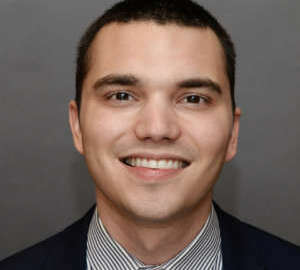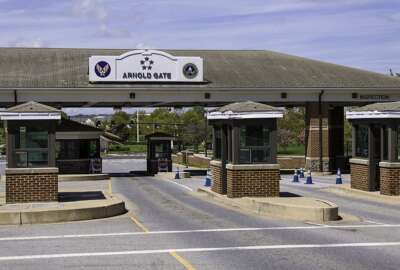
How setbacks and DoD reform led to the creation of SOCOM
Failures and setbacks in the early 1980's inspired lawmakers to undertake the creation of the new Special Operations Command.
Three decades ago, a series of operational setbacks sparked discussions about reforming the Defense Department that culminated in the Goldwater-Nichols Act. But the talks also inspired a small group of lawmakers and aides to examine a much smaller subset of the military: special operations forces.
The failure of Operation Eagle Claw during the Iran Hostage Crisis was followed three years later by Operation Urgent Fury, the invasion of Grenada. The misuse of special operations forces, the lack of appropriate resources, and the inability to coordinate joint operations caught the attention of two senators on the Armed Services Committee: Sam Nunn (D-Ga.) and William Cohen (R-Maine).
Jim Locher was a senior staffer on the Senate Armed Services, where he helped to draft both Goldwater-Nichols and the Nunn-Cohen amendment to the 1987 National Defense Authorization Act. That amendment created the U.S. Special Operations Command (SOCOM) and Locher would become the first assistant secretary of Defense for Special Operations and Low-Intensity Conflict.
Locher said on Agency in Focus — SOCOM that the failures and setbacks in those operations, combined with a study that detailed the Pentagon’s inability to address indirect aggression occurring primarily in the developing world — terrorism, insurgency, drug warfare — inspired Nunn and Cohen to undertake the creation of the new command.
“It was a very visionary view by Sen. Cohen and Sen. Nunn that said ‘as we look to the future, we’re going to see more of this, not less, and we need to develop the capability to take on these threats effectively,’” he told the Federal Drive with Tom Temin.
Locher said the problem was not just policy issues; resource issues existed as well. Services were deactivating units. The Air Force was trying to get rid of its Special Operations aircraft, which lead to Operation Eagle Claw using Navy helicopters for purposes they were not designed for, one of the many factors in the failure of that mission. Budgets were minimal, and acquisition took forever. Locher said in one instance, it took 17 years to get swimmer delivery vehicles for Navy SEALS.
But reforming special operations would be tricky, Locher said. It was not included as a provision in Goldwater-Nichols because so few lawmakers understood the issue, Cohen and Nunn were afraid the provisions would get lost during debate. That is why it became an amendment to the 1987 National Defense Authorization Act instead.
That said, Nunn-Cohen could not have passed without Goldwater-Nichols, according to Locher.
“The Goldwater-Nichols Act provided a tremendous understanding on Capitol Hill of defense organization, especially of the unified commands where lots of provisions were adopted,” he said. “But Goldwater-Nichols also provided a political path for doing the Cohen-Nunn amendment.“
But even after the creation of the new command, Locher said he got a great deal of pushback from a Pentagon still entrenched in its Cold War philosophy.
“I think the overall reason was the kind of missions that special operations forces were going to take on — counterterrorism, counter-insurgency, peacekeeping, contingency operations — those were the kinds of things that the Pentagon really did not want to get involved with,” Locher said. “We had the American way of war, which was really conventional force-on-force. Indirect aggression, for a long time, we had treated as lesser-included cases. So the kinds of things the Cohen-Nunn amendment were trying to improve our ability to address were things that the mainstream Pentagon officers and officials did not want to be part of the Pentagon’s responsibility.”
But the support of combatant commanders, the National Security Council, and a Congress that provided overwatch, increased budgets, and granted authorities allowed SOCOM to survive the pushback and become the command it is today.
Copyright © 2025 Federal News Network. All rights reserved. This website is not intended for users located within the European Economic Area.
Daisy Thornton is Federal News Network’s digital managing editor. In addition to her editing responsibilities, she covers federal management, workforce and technology issues. She is also the commentary editor; email her your letters to the editor and pitches for contributed bylines.
Follow @dthorntonWFED





